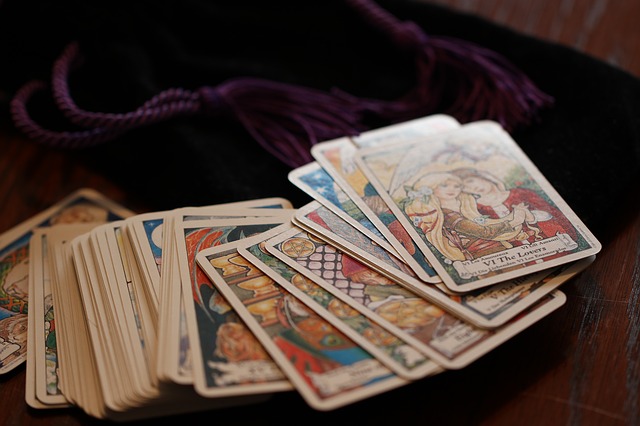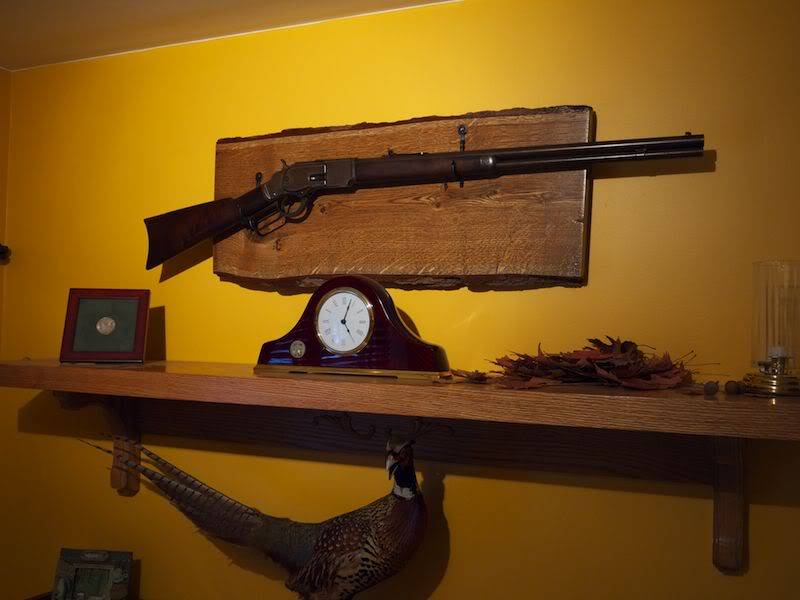Foreshadowing is a very important element in narratives, and the same goes for storytelling through adventures. It helps the players and their PCs know what to expect, gives them hints about future encounters, helps set the tone of the adventure, and makes the dramatic moments land even stronger. Let’s look at some practical ways to use foreshadowing.
NPC Rumors
One of the easiest ways to foreshadow is writing a list of rumors the PCs hear in a settlement they visit. Often, they’ll want to gather information about the current plot or interact with specific NPCs. While giving them information they need now, throw in some rumors that foreshadow later events.
A butcher may comment on how she heard cattle on the nearby farms has been turning up mutilated or inside-out. This gives a brief feeling of disgust and body horror, which can be useful in  preparing the PCs for the aberration filled dungeon coming up. If the PCs hear about the mayor’s fancy new clothes, that helps show the corruption in the aristocracy they’ll be dealing with later. A rumor about missing cats ties in with the furry alien anteater they discover later.
preparing the PCs for the aberration filled dungeon coming up. If the PCs hear about the mayor’s fancy new clothes, that helps show the corruption in the aristocracy they’ll be dealing with later. A rumor about missing cats ties in with the furry alien anteater they discover later.
Weather
Many games ignore the weather, just assuming its always a nice day out. However, if you describe the dark thunderheads moving in, that gives the feeling that something bad is about to happen. It’s this strange reaction people have that if a storm is about to hit then “things are about to go poorly.” Conversely, a drought with a suffocating heat, flagstones you could fry an egg on, and shimmering waves of heat in the distance give the feeling of inescapable oppression. A constant drizzle will set up the feeling of sadness, perhaps foreshadowing for the death of a beloved NPC.
Creature Selection
Some of the “throw away” monsters you choose early in an adventure can help inform the PCs as to what’s coming up. Perhaps they start by dealing with a dire rat problem in the local grain silos. Pair that with complaints from the miller about how the rat problem is worse than ever this year, and you have some nice foreshadowing for the were-rat run criminal organization to muck up the PCs plans down the road. An early encounter with fire elementals suggests a planar influence, preparing the PCs for the efreeti they’ll encounter later. Even an encounter with some underage street thieves can telegraph the crumbling economy and desperation of the citizens.
Treasure
Even the treasure you select can give the PCs a hint or two. If the noblewoman gifts the PCs a splendid mithril dagger for saving her, then they have it for when they’re attacked by a werewolf a couple levels later. Pathfinder Society scenarios are famous for this sort of “treasure foreshadowing” where they give the party two or three antitoxin a room or two before the giant spiders, or leave a +1 fey bane longsword in the treasure horde just before fighting the evil fey queen. The types of treasure you leave can say a lot about the adventure you’ve written, so use it as another element to tell your story.
Chekhov’s Gun
 Anton Chekhov, a famous Russian playwright, was famous for his tight use of dramatic elements. He stated, “Remove everything that has no relevance to the story. If you say in the first chapter that there is a rifle hanging on the wall, in the second or third chapter it absolutely must go off. If it’s not going to be fired, it shouldn’t be hanging there.” He postulated that only elements that serve the story should exist. While I’m not as extreme in this belief as Chekov, this is the reason I dislike random encounters.
Anton Chekhov, a famous Russian playwright, was famous for his tight use of dramatic elements. He stated, “Remove everything that has no relevance to the story. If you say in the first chapter that there is a rifle hanging on the wall, in the second or third chapter it absolutely must go off. If it’s not going to be fired, it shouldn’t be hanging there.” He postulated that only elements that serve the story should exist. While I’m not as extreme in this belief as Chekov, this is the reason I dislike random encounters.
Every encounter should further the plot in some way. Even that mindless fungus creature can serve the plot if it happened to take up residence in the cave where the McGuffin is hidden. Bonus points if an evil druid or capricious fey planted it there. The bandits on the road might have information about the dungeon the PCs are trying to find, perhaps a crude map with areas circled for good ambush points but then one section with a big red X and the word “ghosts.” Tell the story through encounters. A starving pack of wolves might attack the party, but this isn’t a random encounter if it’s also setting up the food shortage the town is experiencing. Make every element matter.
Plant and Payoff
Plant and payoff is a term used in screenwriting that basically serves the same function. If you can introduce a dramatic element early on, you can then reference it later for a more interesting effect. I like to figure out some of my plant and payoff moments in reverse, starting with the payoff. If I know that I want the PCs to have to manipulate an earl near the end of the adventure, I might plant a signet ring with his family crest on one of the bandits or include a rumor about him with the townsfolk.
Look at the big moments in your game, the things that your plot is built around, then imagine ways to make that moment even bigger. Those big moments are your payoff moments, but you need to plant something ahead of time for them to really work well. What’s going to give your players that “ah-ha” feeling?
Will the dragon fight feel more satisfying if they found a few magical arrows that explode into a net on impact? Will negotiating with the greedy prince have more weight if they can learn some of his secrets beforehand? How will the PCs feel when they discover the porter they hired in town is secretly the person who hired them for their quest, who is actually a copper dragon in disguise?
More on plot twists next time… For now, go through your latest adventure and make sure that every rifle gets fired before the end of the adventure, don’t just leave it on the wall!





